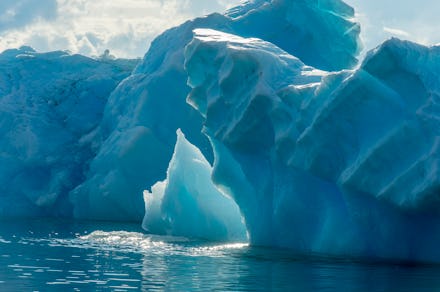There might be tsunamis in Alaska soon, so that's great

If you had "tsunami threats in the Arctic" on your End Of the World Bingo card, mark it off. Experts are warning that Alaska and other typically frozen tundras around the world are at risk of experiencing devastating tsunamis that could threaten populated areas and tourist destinations as the planet continues to warm.
The new apocalyptic-y threat is the result of increasingly unfriendly conditions caused by climate change affecting parts of the planet that have never had to compete with a rising global temperature before. Places with tall mountains and snowy, icy terrain are liable to see some of their protections melt away. That includes permafrost, which plays a role in holding mountains together. As that natural glue starts to erode, the mountains could crumble and tumble into the sea below. That would cause massive tidal waves that may come crashing into shore.
These types of events have already started happening. In 2015, a landslide occurred when the Tyndall Glacier in Alaska started to crumble and sent 180 million tons of rock into Taan Fjord, part of the Icy Bay body of water on the southeast coast of Alaska. As the rocks spilled into the water, a tsunami was generated. Water reached elevations of up to 193 meters (about 633 feet).
A similar event might be on the horizon in the Barry Arm fjord. According to geologists, who warned earlier this year of a potential landslide in the region, a major slope has been creeping downward for the better part of the last century and has only been getting worse over the most recent decade. If it continues at its current pace, the area is ripe for a major landslide. Experts warn that could happen within the next year, and is deemed likely to occur within the next two decades. If it happens, it could unleash a tsunami that would generate waves that would disrupt ships that pass through the region and could even crash into the nearby small town of Whittier, which 205 Alaskans call home.
This threat extends well beyond the shores of Alaska. Canada has already experienced a massive amount of permafrost loss, and glaciers across the country are suffering major melting events that raise the risk of deadly arctic waves. Tsunamis aren't just for the tropics anymore. Now even the previously frozen Arctic can get in on the action of the extreme and devastating weather event. Hooray?